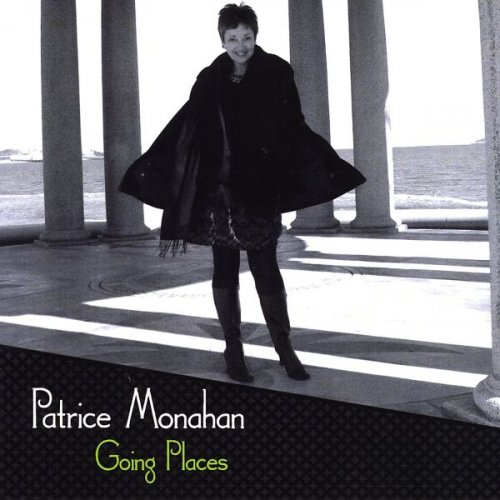Bruno Maderna - Béla Bartók: Orchestral Music (1990)
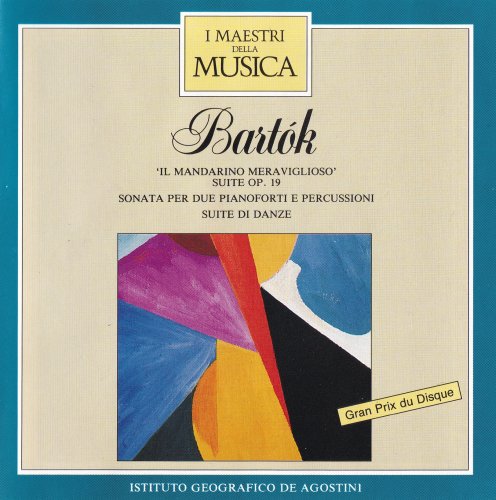
Artist: Bruno Maderna
Title: Béla Bartók: Orchestral Music
Year Of Release: 1990
Label: Istituto Geografico De Agostini
Genre: Classical
Quality: FLAC (image + .cue, log, scans)
Total Time: 59:48 min
Total Size: 306 MB
WebSite: Album Preview
Tracklist:Title: Béla Bartók: Orchestral Music
Year Of Release: 1990
Label: Istituto Geografico De Agostini
Genre: Classical
Quality: FLAC (image + .cue, log, scans)
Total Time: 59:48 min
Total Size: 306 MB
WebSite: Album Preview
Béla Bartók:
[1] »Miraculous Mandarin«, suite
[2] Dance suite
[3-4] Sonata for two pianos and percussion
Italian composer and conductor Bruno Maderna was one of the preeminent figures in contemporary European music in the mid-twentieth century. Born in Venice, Maderna was a child prodigy who played hot violin in a local combo and made his conducting debut at La Scala at age 12. By 1935 the course of Maderna's career was redirected by Italian fascists, who sent the talented child out to tour the capitals of Europe as a symbol of the superiority of the fascist order. Maderna was rescued from this depressing situation by prominent Veronese fashion designer Irma Manfredi, who took the now-adolescent professional musician under her wing and provided for his education.
By the age of 20 Bruno Maderna had already earned his degree in composition from the Conservatory of Rome and returned to Venice to continue under composer Gian Francesco Malipiero. Under Malipiero, Maderna began to master the complexities of serial composition, but this was interrupted by his conscription into the fascist army. By 1943 Maderna had deserted, and in 1945 he turned up fighting on the side of the partisans. At war's end, Malipiero helped get Maderna a teaching job at the Venice Conservatory. He supplemented his income by making transcriptions of Baroque music for the publisher G. Ricordi, composing pop tunes and creating scores for radio drama and some rather undistinguished Italian films.
In 1948 Maderna took a conducting class with legendary maestro Hermann Scherchen and through him probably got to know Wolfgang Steinecke, the founder of the Darmstadt Festival. Maderna had already met composer Luigi Nono at Ricordi, and would meet Luciano Berio in Milan after leaving the Venice Conservatory in 1952. Steinecke engaged Maderna as a conductor at the Darmstadt Festival, a post that made Maderna a celebrity in postwar European avant-garde and one that he would hold until the end of his days. With Berio, Maderna co-founded the Studio Fonologia Musicale of the RAI in 1955, a major electronic music facility that hosted composers such as John Cage, Francesco Donatoni, Henri Pousseur, Niccolò Castiglioni, Luc Ferrari, and others.
As the 1950s gave way to the 1960s, Bruno Maderna's work as a composer began to take a backseat to his activity as a conductor. He was named principal guest conductor with the Chicago Symphony Orchestra, appeared frequently with the Juilliard Ensemble, and was musical director for two years at the Berkshire Music Center in Tanglewood. He also spent a great deal of time in the recording studio and produced many fine albums of contemporary music, although in concert Maderna was equally well known for conducting the symphonies of Mahler and other well-worn repertoire of the Viennese classics. Perhaps this had some effect on Maderna's personality as a composer, as well, for by the end of his life he'd turned his back on the serial aesthetic espoused by the Darmstadt Festival and his colleague Pierre Boulez. This phase of Maderna's career is experienced in his opera Satyricon (1973), the orchestral piece Quadrivium (1969), and in his never-finished series of pieces blanketed under the title Hyperion (1964-1973), unofficially an opera but officially a "lyric (drama) in the form of a spectacle."
When the end came for Maderna at age 53, it did so swiftly -- he was diagnosed with lung cancer during the rehearsals for Satyricon, which premiered in March 1973, and was dead by that November. His celebrity in America was so short-lived that by 2004 Maderna's name was largely forgotten there, but not so in Europe, where he is yet regarded as one of the giants of postwar modernism. -- Dave Lewis
By the age of 20 Bruno Maderna had already earned his degree in composition from the Conservatory of Rome and returned to Venice to continue under composer Gian Francesco Malipiero. Under Malipiero, Maderna began to master the complexities of serial composition, but this was interrupted by his conscription into the fascist army. By 1943 Maderna had deserted, and in 1945 he turned up fighting on the side of the partisans. At war's end, Malipiero helped get Maderna a teaching job at the Venice Conservatory. He supplemented his income by making transcriptions of Baroque music for the publisher G. Ricordi, composing pop tunes and creating scores for radio drama and some rather undistinguished Italian films.
In 1948 Maderna took a conducting class with legendary maestro Hermann Scherchen and through him probably got to know Wolfgang Steinecke, the founder of the Darmstadt Festival. Maderna had already met composer Luigi Nono at Ricordi, and would meet Luciano Berio in Milan after leaving the Venice Conservatory in 1952. Steinecke engaged Maderna as a conductor at the Darmstadt Festival, a post that made Maderna a celebrity in postwar European avant-garde and one that he would hold until the end of his days. With Berio, Maderna co-founded the Studio Fonologia Musicale of the RAI in 1955, a major electronic music facility that hosted composers such as John Cage, Francesco Donatoni, Henri Pousseur, Niccolò Castiglioni, Luc Ferrari, and others.
As the 1950s gave way to the 1960s, Bruno Maderna's work as a composer began to take a backseat to his activity as a conductor. He was named principal guest conductor with the Chicago Symphony Orchestra, appeared frequently with the Juilliard Ensemble, and was musical director for two years at the Berkshire Music Center in Tanglewood. He also spent a great deal of time in the recording studio and produced many fine albums of contemporary music, although in concert Maderna was equally well known for conducting the symphonies of Mahler and other well-worn repertoire of the Viennese classics. Perhaps this had some effect on Maderna's personality as a composer, as well, for by the end of his life he'd turned his back on the serial aesthetic espoused by the Darmstadt Festival and his colleague Pierre Boulez. This phase of Maderna's career is experienced in his opera Satyricon (1973), the orchestral piece Quadrivium (1969), and in his never-finished series of pieces blanketed under the title Hyperion (1964-1973), unofficially an opera but officially a "lyric (drama) in the form of a spectacle."
When the end came for Maderna at age 53, it did so swiftly -- he was diagnosed with lung cancer during the rehearsals for Satyricon, which premiered in March 1973, and was dead by that November. His celebrity in America was so short-lived that by 2004 Maderna's name was largely forgotten there, but not so in Europe, where he is yet regarded as one of the giants of postwar modernism. -- Dave Lewis
![Hanna Paulsberg Concept - Waltz for Lilli (2012) [Hi-Res] Hanna Paulsberg Concept - Waltz for Lilli (2012) [Hi-Res]](https://www.dibpic.com/uploads/posts/2026-03/1772432856_zl4ax53u6ddcs_600.jpg)
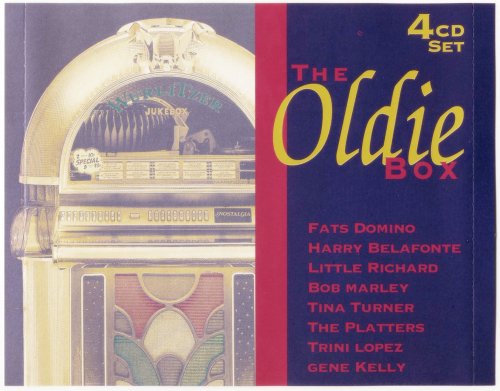
![VA - From the Archive Vol. 3... compiled by Volcov (2026) [Hi-Res] VA - From the Archive Vol. 3... compiled by Volcov (2026) [Hi-Res]](https://www.dibpic.com/uploads/posts/2026-02/1772033794_a3743742618_10.jpg)
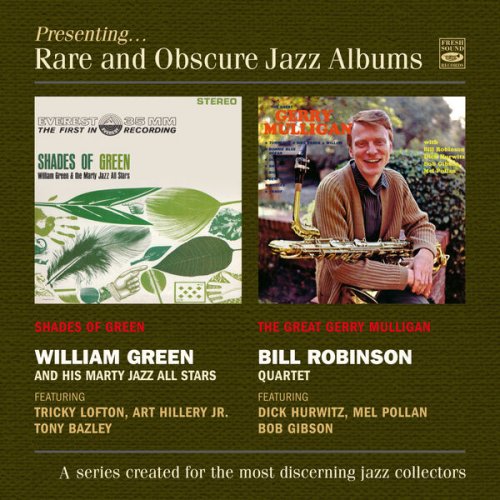
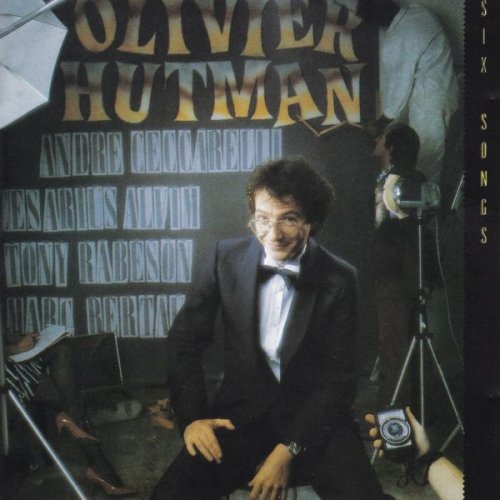
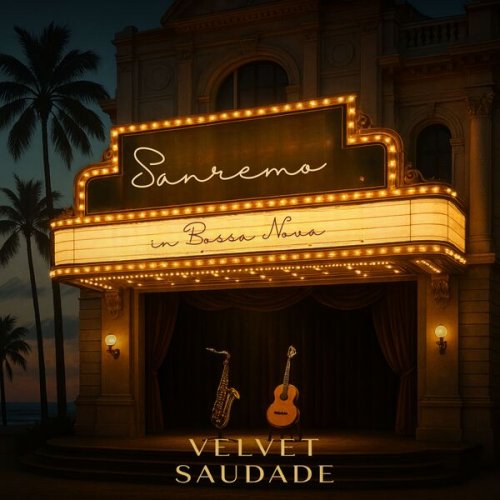
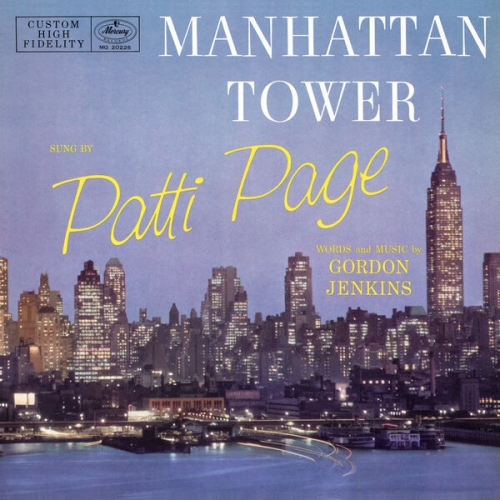
![Whatever Happens Don't Be Yourself! - Tales of No Consequence (2026) [Hi-Res] Whatever Happens Don't Be Yourself! - Tales of No Consequence (2026) [Hi-Res]](https://img.israbox.com/img/2026-02/27/6usdiy5oinb96d1lfeldes4eg.jpg)
